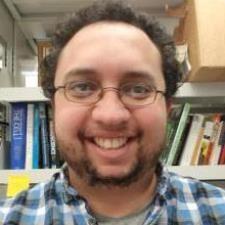Robert T. answered • 01/03/20
Masters degree in biology with 4 years of teaching experience
Your cynicism is warranted! He's "such a big deal" mostly due to historical reasons and relative ease of understanding. As noted, it was known for a very long time that offspring tended to resemble their parents. The prevailing idea at the time was "blending" which, I believe, everybody knew was inherently wrong -- if it were correct, we'd all look the same eventually as everything "evened out". What Mendel discovered was a mechanism that could both explain and predict phenotypes in offspring. He didn't go further into describing how that worked -- he simply referred to "heritable particles", what we now call genes, as being passed through generations. So, he was the first to come up with this idea that "ok, so a phenotype is governed by a version of a 'heritable particle' that may not appear in every generation. This can be explained such that the phenotype is masked behind a more dominant phenotype." In effect, he discovered ploidy how many copies of chromosomes an organism has. He assumed there were 2, as that's what pea plants have, but of course, we now know organisms vary wildly in their ploidy. His own work was mostly ignored when it was written, and wasn't rediscovered until around 100 years ago, by Thomas Hung Morgan and those who worked in his infamous Fly Room at Columbia. Epistasis, sex-linked inheritance, recombination, linkage maps (allowing maping of gene location on fly chromosomes far before people even knew what genes were) were all discovered there; just about everybody who worked in that lab would win a Nobel Prize for some reason or another, for contributions to genetics and/or evolution. True "modern" genetics doesn't care about heridity at all. It's all about how genes are regulated between different states (disease vs non-disease) and time (development vs adulthood) or both. True "modern" genetics didn't really begin until during human genome project in mid 90s, but Mendel was father of genetics, the first to describe quantitatively on how phenotypes are passed through generations, and how to make predictions based on those assumptions. Personally, I wish what most classes called "genetics" would be called but it really is -- heredity -- and not focus so much on the overly simplistic representation of genetics. I've known of many "advanced" genetics classes that teach the exact same stuff as you'd learn in a high school biology class, as far as genetics is concerned. How does that prepare students for the modern world and future challenges?





